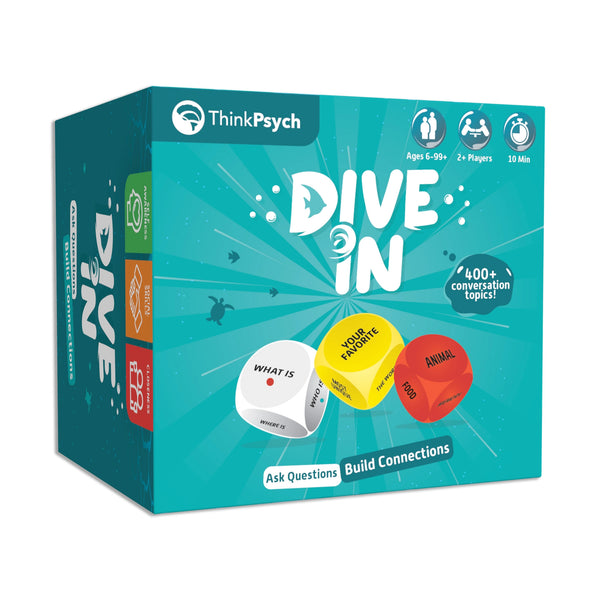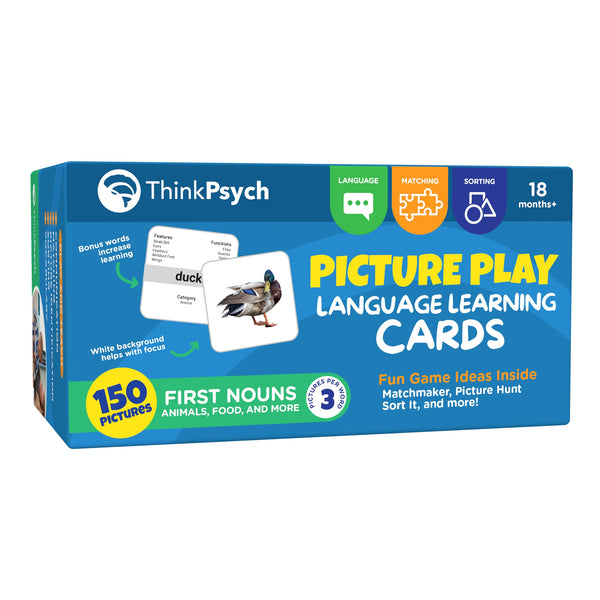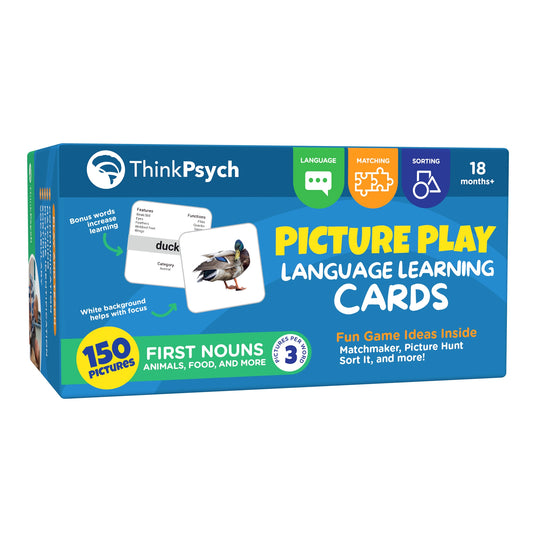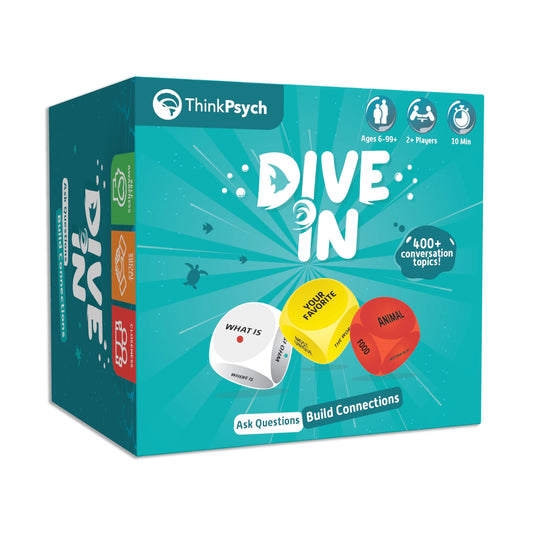
How to Teach Your Child to Take Initiative
Share
As a parent, you may often feel like a broken record player. Every day, you tell your child to get ready for school, pick up his toys, do his homework… the list goes on and on.
Why is it so hard for your kid to do things without your prompting?
In the very early years, it’s appropriate for you to take charge of all your child’s needs. But as your kid grows up, it’s their turn to gradually take initiative and responsibility. Being proactive is vital for children to learn how to solve their own problems. After all, a kid who takes initiative doesn’t constantly rely on mom and dad to come to the rescue!
If your kid always waits to be told what to do, it’s time to teach your child to take initiative. Our experts at ThinkPsych have put together these best practices to begin this learning process and cultivate resourcefulness in your child.
Why Is Taking Initiative a Powerful Skill?
Learning to take initiative is an essential step in cultivating life-important skills. It’s all about anticipating and understanding needs, and then coming up with a solution. Just consider how powerful initiative can be in these scenarios:
- It’s snack time and your kid is hungry. → Does your kid take the initiative to grab an apple or make a sandwich? Or come running to you with “Mom, I’m hungry”?
- Your child has a big school project due on Friday. → Does your kid plan ahead and tell you what materials he needs to complete it? Or does he wait until the last minute and then beg for your help?
- There’s no more toilet paper in the bathroom. → Does your kid know how to replace the toilet paper on his own? Or just complain that there’s none left?
- Soccer practice let out early and your kid is waiting to get picked up. → Does your child ask a trusted adult to call you? Or simply wait for you to arrive late?
The ability to take initiative in these situations enables your child to rely on themselves and meet their own needs. At the same time, this skill can boost your child’s:
- Problem-solving, including thinking up solutions and resolving conflicts.
- Sense of agency. Your kid will feel more in control, instead of waiting for things to happen.
- Responsibility, i.e. taking ownership over their obligations instead of giving excuses.
- Empathy. Your kid will become more aware of their own needs, as well as those of others.
- Teamwork. In group settings, your child will have to find solutions that work for everybody.
- Motivation to try new things. Your kid will feel more confident if they practice getting out of their comfort zone.
- Enhanced curiosity and creativity. Asking questions and seeking answers is a part of top initiative skills.
- Integrity. Your child will be better equipped to make difficult decisions when they don’t depend on others to tell them what to do.
Ultimately, everybody loves a self-starter and a leader. As they get older, your kid’s responsibilities may become greater, but it’s the same skill that leads them to resolve issues. Not to mention that taking initiative is directly related to academic and job success down the road.
Best Practices to Teach Your Child to Take Initiative
Learning to take initiative isn’t done in a day. To foster a sense of initiative in your household, here are some practical methods you can start implementing.
1. Don’t Rescue Your Child From Boredom
A sense of initiative begins with your kid’s most cherished activity: play. When your child complains about being bored, this is the perfect opportunity to teach your child to take initiative.
Force your kid to brainstorm some potential activities. This helps them think through options and get creative. If they still can’t find a solution, make a boredom jar together with suggestions (or ask for their help with something truly boring, like chores!). Whatever you do, don’t fix their boredom problem for them!
2. Show Your Kid How to Complete Daily Tasks
Equip your kid for success by showing them how to do things. If you’re frustrated that they don’t know how to prepare a snack, for example, demonstrate step-by-step how to make a sandwich. Remember that you may have to practice this a few times before your kid gets the hang of it. For all key daily tasks, give your child the tools and preparation they need to do it on their own.
3. Give Your Kid Time and Space to Learn
Teaching your child to take initiative doesn’t work if you’re in a rush. Your kid needs time to develop skills and perform them independently. For instance, don’t expect your child to tie their shoes by themselves if you’re running late for school. Start this process early enough that your kid has time to work on their skills. Otherwise you’ll just end up swooping in and handling the task for them.
4. Cultivate a Growth Mindset
Your kid might not get it right the first time, or the second, or the third. That’s ok! It’s normal that their efforts may not yield perfect results at first. Support them at whatever they’re trying to do on their own. Teach them the meaning of a growth mindset, i.e. that they have the ability to improve over time. A growth mindset is essential for your kid to overcome feelings of failure and continue to work at getting better.
5. Come Up With Coping Mechanisms
Learning to take initiative can be a challenging process. As your kid takes on new responsibilities, it’s possible they will face obstacles.
Shop ThinkPsych Products
For instance, taking initiative on an oral book report project can involve all kinds of frustrations. Your kid will have to understand the story, create a poster, practice the presentation, etc. Help your child identify coping mechanisms so they don’t give up on the project. Suggest that they take a break, do a relaxing activity or talk out the problem with you.
6. Build Confidence
The fear of failure or criticism can keep your child from doing things on their own, too. It’s beneficial to boost your child’s confidence so that they feel capable of taking on new challenges. Watch your words when talking about your kid’s efforts. If you find yourself correcting or criticizing them often, this may be contributing to their low self-esteem. Focus on praising their efforts, regardless of whether the final outcome was ideal.
7. Take Homework and Chores Seriously
Homework and chores are two excellent entry points into learning initiative. Leverage these tasks as opportunities to teach your child independent action. Instead of telling your kid to do his homework, put the onus on him. Ask organization-oriented questions such as “When are you planning to do your homework?” or “What materials do you need to complete it?”
For chores, use a similar approach of letting your kid decide how and when to complete them. At the same time, there should be consequences when your child does a poor job or doesn’t make the deadline you’ve set.
8. Invite Your Child to Help You Out
Get your kid involved in your own responsibilities! Doing so can give them more chances to see initiative in action. Ideally, you can invite your kid to help out, but don’t force them to participate. You might invite them to help you go grocery shopping, call family members or clean out the garage. Often kids like to be helpers, especially with tasks that seem “grown-up” to them.
9. Take Your Child Out of Their Comfort Zone
Everybody's scared to try new things sometimes. You can build up your child’s resilience by exposing them to different environments. Get them to face their fear by taking field trips, signing them up for a fun activity or simply changing up their routine. When your kid learns to step out of their comfort zone, they’ll be more prepared to handle new circumstances and problems.
10. Try Incentives, but Don’t Go Overboard
Incentives can work well, especially with a hesitant child. However, be careful about creating a vicious good behavior-reward cycle. Offer healthy rewards such as going to the park, preparing their favorite snack or picking out a new book.
Also, keep in mind that verbal encouragement has been shown to enhance outcomes in kids. Giving your child praise often when they take initiative may be more effective in the long run.
11. Model Good Initiative Yourself
Kids learn best by example. Model good initiative in your own responsibilities and household chores. Draw your child’s attention to your efforts by narrating when you choose to be proactive. For example, if the sink is overflowing with dishes, tell your kid something like: “Looks like the dishes need to get done! I’m going to take care of that now.”
Another pro tactic is to hold regular family meetings. During these sessions, you can plan ahead as a family and showcase good initiative-taking. Encourage your child to participate so that they develop a keen sense of decision-making.
12. Remember It’s a Process
Don’t expect your child to magically start taking out the trash tomorrow. Teaching your child to take initiative is a long-term project that will test your patience. During this process, try to stay patient and praise your child’s progress. With consistent feedback and support, your kid will learn to take more initiative at home, school and beyond.
Teach Your Child to Take Initiative With ThinkPsych
Taking initiative is a vital life skill that can support your child’s ability to problem-solve, take responsibility and try new things. Leverage our expert strategies above to teach your child to take initiative and gradually become more independent.
At ThinkPsych, we’re strong advocates for developing emotional intelligence in young children. Taking initiative is just one important ability that fosters EQ in kids. Learn more about key developmental topics on our ThinkPsych blog!
References:
- National Physicians Center, Teaching Elementary Age Children to Take Initiative, https://www.physicianscenter.org
- Parentwise, How Do I Get My Child to Take More Initiative?, https://www.parentwise.sg
- Parent Cue, 4 Ways to Teach Your Kids Initiative, https://theparentcue.org
- Skidos, Teaching Children to Take Initiative, https://skidos.com
- Simple Homeschool, Teaching Kids to Take Initiative, https://simplehomeschool.net
- Pexels, Industrious Young Girl Cleaning the Dishes, https://www.pexels.com


















1 comment
A great read!! Raising kids who take charge of their own lives… it’s not about being a helicopter parent , it’s about giving them the wings to fly.